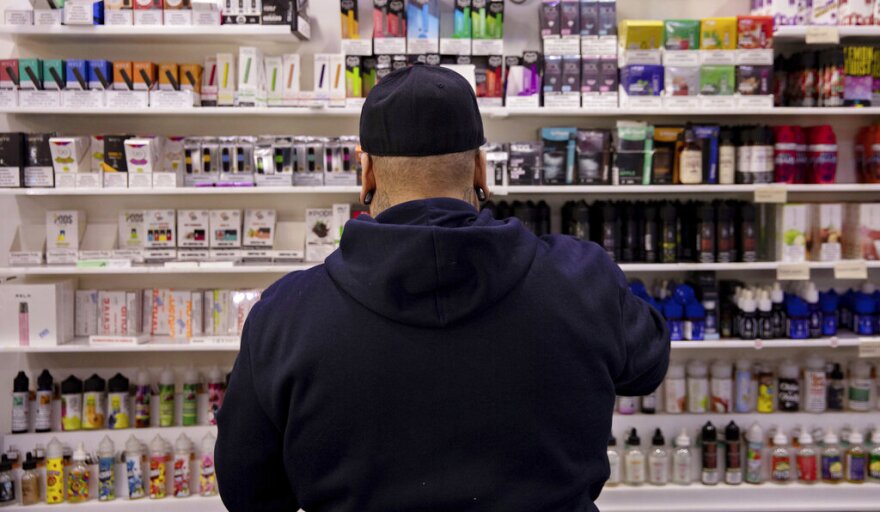Kansas City’s next step in the fight for social justice may be a ban on menthol cigarettes and other flavored nicotine products.
Nearly a quarter of high-schoolers in Missouri use tobacco, and in Kansas City, Missouri, 40% of public schools are within a few blocks of a tobacco retailer, according to a study by the Advancing Science and Practice in the Retail Environment (ASPiRE) Center, which is funded by the National Cancer Institute.
Furthermore, Kansas City residents living in the lowest income neighborhoods are nearly 10 times more likely to live within 1,000 feet of a tobacco retailer than people living in the highest-income neighborhoods, according to the study.
A proposed ordinance before the city council’s finance, governance and public safety committee would ban all flavored tobacco and nicotine products, including cigarettes, cigars, vape pens, e-cigarettes and flavor enhancers.
Councilwoman Melissa Robinson said her mother, who died of a stroke, smoked menthol cigarettes.
“Menthol cigarettes are heavily marketed to African-American and Latino smokers,” Robinson said. “Flavored tobacco is a social justice issue. The tobacco industry… has a history of really targeting the African-American community."
The negative health effects of smoking and tobacco use have been well-documented for decades, and recent research has linked some vaping products to lung injuries.
Speaking in support of the measure on Wednesday, Dr. Willie Lawrence, chief of cardiology at Research Medical Center, said more African-Americans die of tobacco- and nicotine- related illness each year than any other racial or ethnic group in the country.
He said a vast majority use menthol products.
“Big Tobacco targets African-American neighborhoods with excessive in-store advertising, promotional giveaways and discounts for menthol products, as well as sponsorship and support of cultural events and initiatives,” Lawrence said.
He said this is a key example of structural and apathetic racism.
“People just don’t care. They put profit ahead of health. This is a public health crisis,” Lawrence said.

But several convenience store owners and distributors of tobacco products said banning flavored products in Kansas City would only drive business to other municipalities.
Natasha Everest, who works as an operations manager for a local convenience store and gas station, said her employees are trained not to sell tobacco products to minors. She worried that if the ban passes, teens will go online and purchase vape products from unregulated companies overseas.
“I would be … relieved knowing that Big Tobacco is being policed and that we know exactly what ingredients are going into tobacco and vape products. I really am not concerned about the loss of revenue,” Everest said.
Others argued the ban would curtail the sale of products like CBD, which can have some health benefits.
Councilman Kevin McManus worried the ban is overly broad. He said banning the sale of flavored cigars or pipe tobacco at an upscale smoke shop doesn’t necessarily serve the purpose of limiting the sale of cigarettes to youth or in low-income neighborhoods.
He suggested either limiting the ban to certain types of retailers, like liquor stores or convenience stores, or exempting certain products, like pipe tobacco.
“In the middle of COVID when all of these businesses are feeling a pinch, I think it’s just something to think about – what those economic consequences are for some of these businesses that have already invested in our city,” McManus said.
McManus offered to help craft a revised ordinance that would include certain exemptions.
Councilman Lee Barnes said members of his family have suffered from health issues related to smoking.
“As a matter of principle… these are legal products, and banning legal products that can be sold in the jurisdiction next door, I don’t know if that really solves the problem we’re looking to solve,” Barnes said.
The committee is set to take up the issue again on Tuesday.





